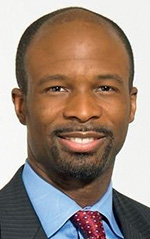Workplace Conditions at State: Change Is Coming
Speaking Out
BY STACY D. WILLIAMS
Speaking Out is the Journal’s opinion forum, a place for lively discussion of issues affecting the U.S. Foreign Service and American diplomacy. The views expressed are those of the author; their publication here does not imply endorsement by the American Foreign Service Association. Responses are welcome; send them to journal@afsa.org.
I was quite pleased to read The Foreign Service Journal’s April 2024 edition. Finally, there was a conversation focused on the State Department’s problems with bullying and incivility, showcasing the need for the department to identify immediate-, medium-, and longer-term solutions to the challenges employees are facing within the workplace. These issues must be addressed as Secretary Antony Blinken pursues his goals of modernizing U.S. diplomacy.
As chair of the employee organization Balancing Act, I am all too familiar with these issues. Over the last three years (and in another sense, the last seven), the State Department, like the rest of the country, has experienced a period of great turbulence and imbalance.
The immediate need is to bring equity front and center as the means to “rebalance” our efforts to establish a collegial, collaborative, and inclusive work environment, one in which we all have the opportunity to be seen, heard, valued, and respected at all levels.
Top Challenges
Overwork, impossible deadlines, varied working conditions, lack of support, and high levels of professional and personal risk are the kinds of stressful challenges diplomats have always faced to one degree or another, as the State Department deals with budgetary and policy decisions, leadership quality, and the general political climate.
In recent years, and in particular during and following the height of the COVID-19 pandemic in 2021, State employees have experienced a significant increase in workload with no additional staffing or resources. Lingering effects from the January 2017 to May 2018 hiring freeze at State made matters worse.
The pandemic upended work routines as well as family life. Department employees were compelled to do even more with even less. The increased workload produced shorter deadlines and eroded the demarcation between work and personal life. It was as if we were in the trenches with no air support, or other reinforcements, and relied on each other and employee organizations to talk through these experiences as coping mechanisms to safeguard our mental health.
Many employees reported their concerns to Balancing Act about deteriorating supervisor/employee relationships, with no effective mechanisms to resolve these increasingly uncomfortable situations. Some supervisors were routinely requiring Foreign Service and Civil Service employees to work beyond normal business hours and on weekends, without allowing for the legally authorized overtime or compensatory time off for Civil Service and nontenured Foreign Service employees.
Based on these findings and the challenges in interpreting complex overtime regulations, Balancing Act leadership worked with the Bureau of Global Talent Management in 2022 to pull together a cable, 22 State 107214: “Taking Care of People: Overtime and Premium Compensation Policy Guidance and Reminders.”
Despite the cable’s release on Sept. 28, 2022, there is still no mechanism to reinforce this directive or promote a leadership culture of compensating and rewarding eligible employees for the additional work done to meet the needs of the department.
In February 2023, the department released the results of a Stay Survey pinpointing the commitment to mission as a positive factor in motivating employees to remain within the department. Conversely, however, the survey results found that the number one factor causing employees to consider leaving the State Department was poor supervisors.
Turning the Corner
Throughout 2022 and 2023, workload and workplace conditions repeatedly dominated department leadership town halls. The unanswered question (then, as now) was: How will the State Department put into place adequate accountability measures to address these shortcomings in order to protect and retain our most valuable resource, our people?
In 2024 department leadership agreed to provide resources to the Office of the Ombuds (S/O) to staff the Workplace Conflict Prevention and Resolution Center for the first time since it was created about a decade ago. This was a welcome step. But given that, according to the announcement, it is step one of a three-step process, it is too early to tell if the new effort will succeed.
On March 28, the S/O announced a new anti-bullying policy that officially defines bullying behaviors so that everyone has a full understanding of what to look for and can state in writing or orally that such behavior is unwelcome [see the FSJ’s April 2024 Straight from the Source, “Office of the Ombuds Takes on Bullying at State,” by Brianna Bailey-Gevlin]. For this process to work effectively, the system has to build in support mechanisms to ensure that the employee’s concerns are heard and adequately addressed through their chain of command and the Executive Office. Hopefully, the Foreign Service Institute will incorporate the anti-bullying policy throughout its leadership and management curriculum.
In addition, Director General Marcia Bernicat announced the Bureau of Global Talent Management’s “Focus on Accountability” programming to raise accountability awareness in the April 2024 edition of State Magazine. The initiative took into account results from the Stay Survey as a first step to try to address workplace condition issues and hold those responsible for disrupting the system accountable.
Leveling the Playing Field
In March 2020, State established a Manager Support Unit to assist managers and supervisors in dealing with employee performance and conduct issues. This was a logical step. However, today some employees contending with managers who exhibit bullying behavior lack the knowledge or resources to effectively navigate these difficult situations.
The Fiscal Year 2024 National Defense Authorization Act (NDAA) added a new Retaliation Prevention Provision (Section 6211) restricting supervisors from writing an evaluation on an employee who has a discrimination, bullying, or harassment case against that supervisor in process. This is a small but significant development.
Along these lines, the State Department should establish an “Employee Support Unit” to serve as a clearinghouse on equal employment opportunity (EEO) issues, filing of grievances, officially reporting cases of bullying, managing curtailments, and understanding the role of unions, among other areas of support.
Survey results found that the number one factor causing employees to consider leaving the State Department was poor supervisors.
Such a unit would also serve as a tool for tracking inquiries and the timeliness of responses. The employee experiencing unwelcome situations could write to the Employee Support Unit, where the department could review the case, assign it to the appropriate department office, and alert the employee of the actions to take.
Currently, the burden is placed on the employee to identify the correct office and be aware of time limits and other requirements of the particular process. To appreciate the implications of this burden, one can look to notable employee experiences from the last few years.
Implementing Accountability Measures
Leadership. It is as important now as ever to select managers who are self-aware, empathetic, emotionally intelligent, and great communicators, among other attributes. Once we recruit and hire them, State must invest in them, ensuring they have the tools to keep pace with changing workloads and hybrid work.
These types of managers routinely prioritize building up the workforce, meeting the team where they are, and doing the necessary to adequately resource and advocate for the team.
These attributes are clearly prescribed in State’s Leadership and Management Principles (see 3 FAM 1214) and should be exhibited by employees, supervisors, and managers alike. Both employees and supervisors should be held accountable when they fail to adhere to these principles.
Support for managers before problems arise. Mandatory leadership training, which Secretary Colin Powell introduced, was only a first step in building strong, accountable leaders. The Manager Support Unit provides a tool kit for navigating difficult management challenges.
But what about long before those problems arise? There is no commensurate place for managers to find a tool kit of tactics for managing hybrid teams, building rapport when a team member is on domestic employee teleworking overseas (DETO), or for tracking employees’ tasks, managing information flow from several different systems, or simply keeping pace with email.
Some managers and subordinates are fortunate in picking up tools along the way from talented colleagues. More training and resources for managers on how to build and sustain healthy teams, including an online repository of strategies to apply, is a clear first step.
360 reform. The 360 process is used in the Foreign Service to solicit input from references to support an employee’s bidding process for upcoming assignments. This normally occurs every two to three years. Traditionally, the process allows members of the Foreign Service to select those individuals who will provide a positive assessment.
In its current form, this process leaves out vital voices who can give honest feedback on the employee’s performance, how they treat others, and whether or not they should be given greater leadership responsibilities.
To mandate that the employee include a broader set of colleagues familiar with them would—eventually—change behaviors, because decisionmakers would be able to see the whole person based on a broader set of voices.
Employee evaluation report (EER) reform. State has made some changes in evaluating FS employee performance and leadership capabilities. The department’s workforce has changed over time, and expectations and a postpandemic reality have changed our workplace, but we still use the same measurements to identify and promote leaders.
The EER rightly captures an employee’s accomplishments, ability to effectively lead teams, and ability to achieve overall results. But as leaders, employees have to manage teams under sometimes challenging circumstances, which requires the full tool kit of knowledge, skills, and abilities. Therefore, there is a need to take into account the whole person and, in some way, the results identified in the 360 process.
In current practice, even individuals who have been identified as detrimental to an office or post make the promotion list in time, which rewards and emboldens poor managers. Many of these individuals never receive the necessary feedback and corrective training and present the same negative behavior at assignment after assignment.
This is demoralizing to those who are going about their work in alignment with promotion precepts but do not make the promotion list.
The department has solicited ideas to enhance the EER, and The Foreign Service Journal has published several articles, including an April 2023 Speaking Out by Virginia Blaser, “Why Our Evaluation System Is Broken and What to Do About It,” and an April 2020 feature by Alex Karagiannis, “Evaluation Reform at State: A Work in Progress,” highlighting this need.
We do hope that the department will consider incorporating those ideas in the process for improvement.
Many of these individuals never receive the necessary feedback and corrective training and present the same negative behavior at assignment after assignment.
In closing, there is a foundational scene in the blockbuster movie “Oppenheimer,” where the leading character meets renowned physicist Niels Bohr, and during the encounter Bohr asks Oppenheimer, “Can you hear the music?”
Bohr saw Oppenheimer’s potential and was trying to get him to fully understand the deep and intuitive mathematics involved in physics. The advice spurred Oppenheimer to pull the puzzle pieces together to do what had not been done before in that critical discipline.
Separately, a mentor of mine once stated: “When a group of people fully understands the system, the group is then able to make changes to the system to benefit the institution.”
At this critical moment in the State Department’s history, we need to “hear the music” of a changing workforce in order to build and promote a workplace culture of civility, accountability, and balance. We should pool all our resources, talents, and energies for the good of the institution. That time is now.
When sharing or linking to FSJ articles online, which we welcome and encourage, please be sure to cite the magazine (The Foreign Service Journal) and the month and year of publication. Please check the permissions page for further details.
Read More...
- “Workplace Flexibility: What’s In It for State?” by Margot Carrington, The Foreign Service Journal, May 2011
- “One Bureau’s Model for Moving Forward” by Stacy D. Williams, The Foreign Service Journal, October 2020
- “Needed: A Management Mindset” by Charity L. Boyette, The Foreign Service Journal, October 2020
- “Knowledge Management @ State: It’s not the technology. It’s the people.” by Yomaris MacDonald, Lourdes Cue, Timothy Haynes, Jennifer L. Smith and Benjamin A. Tietz, The Foreign Service Journal, October 2021




